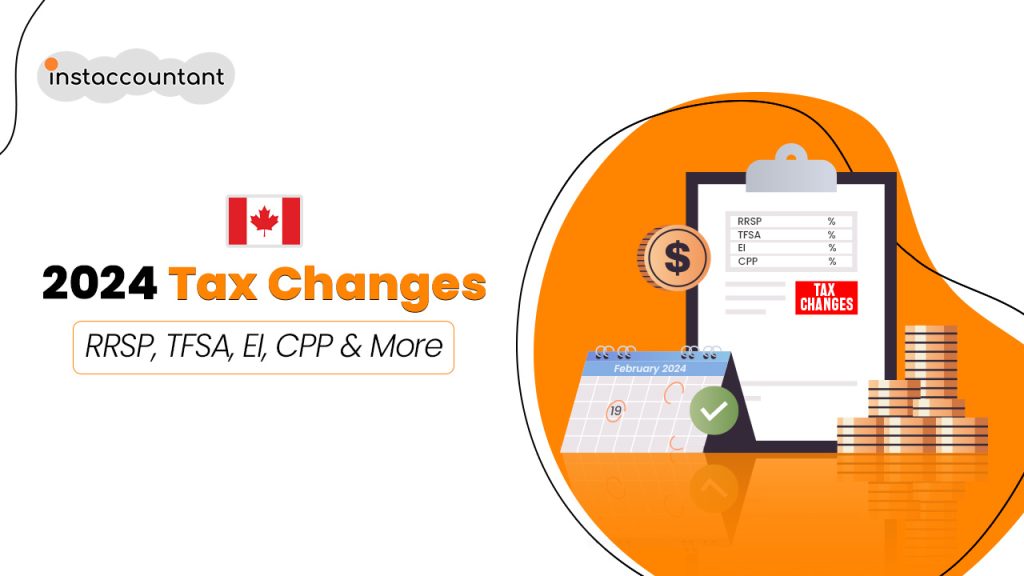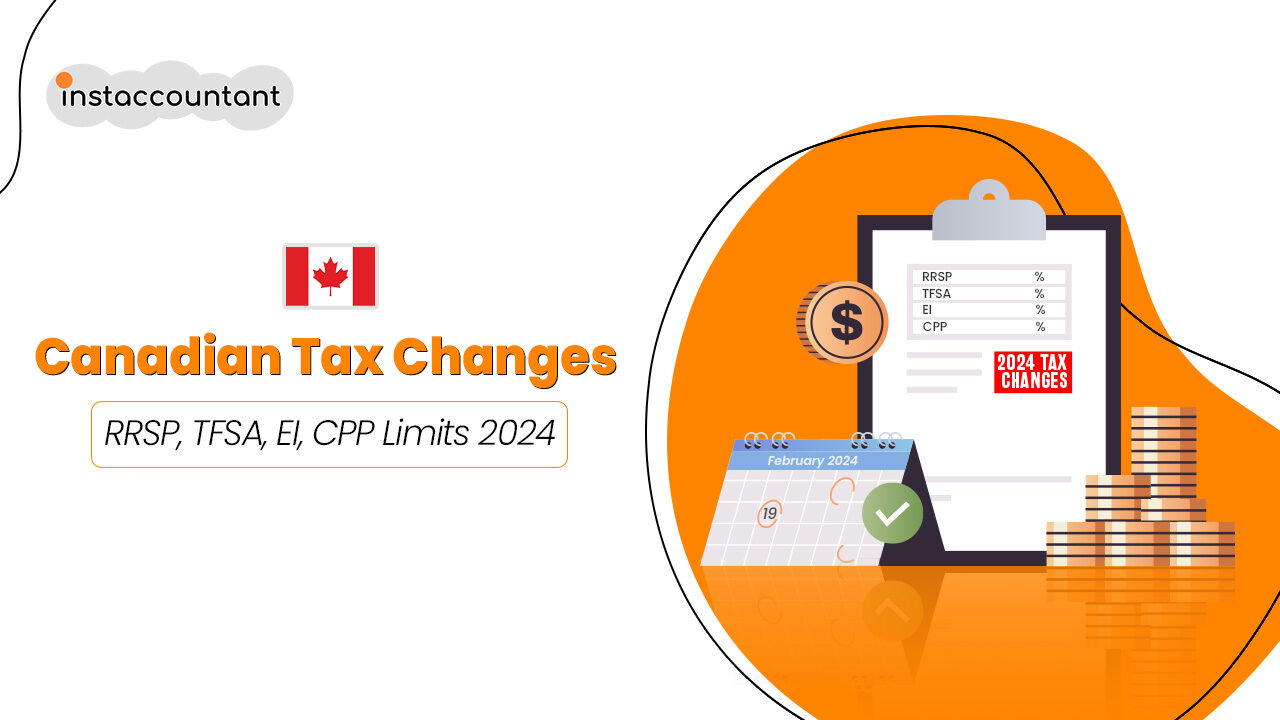The tax system in Canada is constantly evolving to reflect the economic and social realities of the country. As a Canadian taxpayer, it is important to stay informed of the latest tax changes and how they affect your financial planning. In 2024, there are some significant updates to the tax limits and rates of various programs that can help you optimize your tax situation. Whether you are saving for retirement, investing in the stock market or claiming deductions and credits, you need to be aware of these changes and how they can impact your income and taxes. Here’s a summary of what you need to know.

Basic personal amount:
The basic personal amount for 2024 is $15,705 for taxpayers with net income of $173,205 or less. At income levels above $173,205, the basic personal amount is gradually clawed back until it reaches $14,156 for net income of $246,752. The basic personal amount for 2023 ranges from $13,520 to $15,000.
Maximum RRSP contribution:
The maximum RRSP contribution for 2024 is $31,560; for 2023, it’s $30,780. The 2025 limit is $32,490. Remember that your contribution limit is based on your earned income in the previous year, and that you can carry forward any unused room from previous years. RRSP contributions are tax-deductible and can lower your taxable income.
TFSA limit:
In 2024, the TFSA annual limit is $7,000, for a total of $95,000 for someone who has never contributed and has been eligible for the TFSA since its introduction in 2009. The annual limit for 2023 is $6,500, for a total of $88,000 in room available in 2023 for someone who has been eligible since 2009. TFSA contributions are not tax-deductible, but any income or gains earned inside the account are tax-free.
Maximum pensionable earnings:
For 2024, the maximum pensionable earnings amount is $68,500 (up from $66,600 in 2023), and the basic exemption amount remains $3,500. New for 2024, earnings between $68,500 and $73,200 will subject to a second tranche of CPP contributions. This means that you and your employer will each pay an additional 0.5% of your earnings above $68,500 to the CPP. The maximum employer and employee contribution to the CPP in 2024 is $3,427.20 each (up from $3,166.45 in 2023), and the maximum self-employed contribution is $6,854.40 (up from $6,332.90 in 2023).
Maximum EI insurable earnings:
The maximum annual insurable earnings (federal) for 2024 is $63,200, up from $61,500 in 2023. The EI premium rate for employees is unchanged at 1.58%, while the rate for employers is unchanged at 2.212%. The maximum annual employee premium is $998.56 (up from $971.70 in 2023), and the maximum annual employer premium is $1,398.78 (up from $1,360.38 in 2023).
Prescribed interest rates:
The prescribed rate on loans to family members will be 6% in Q1 2024, and the interest rate Canadians must pay on overdue tax will be 10%. This is an increase from 5% and 9%, respectively, in Q4 2023. These rates are based on the average yield of Government of Canada three-month treasury bills sold during the first month of the previous quarter.
Lifetime capital gains exemption:
The lifetime capital gains exemption is $1,016,836 in 2024, up from $971,190 in 2023. This means that you can realize up to this amount of capital gains on qualified small business corporation shares or qualified farm or fishing property without paying any tax.
Home buyers’ amount:
A client who bought a home may be able to claim up to $10,000 of the purchase cost, and get a non-refundable tax credit of up to $1,500. To qualify, neither the client nor their spouse or common-law partner can have owned and lived in another home in the year of purchase or any of the four preceding years.
Medical expenses threshold:
For the 2024 tax year, the maximum is 3% of net income or $2,759, whichever is less. For 2023, the max is 3% or $2,635. You can claim medical expenses for yourself, your spouse or common-law partner and your dependent children under age 18.
The tax landscape in Canada is changing in 2024, and you need to be aware of how these tax changes will affect your obligations and opportunities. Whether you are an individual, a small business owner, or a self-employed professional, these changes will have an impact on your income, deductions, credits, and filing requirements. The best way to prepare for these tax changes is to consult with a tax professional who can help you understand your situation and plan accordingly. A tax professional can also help you take advantage of any tax-saving opportunities that may arise from the new tax rules.




